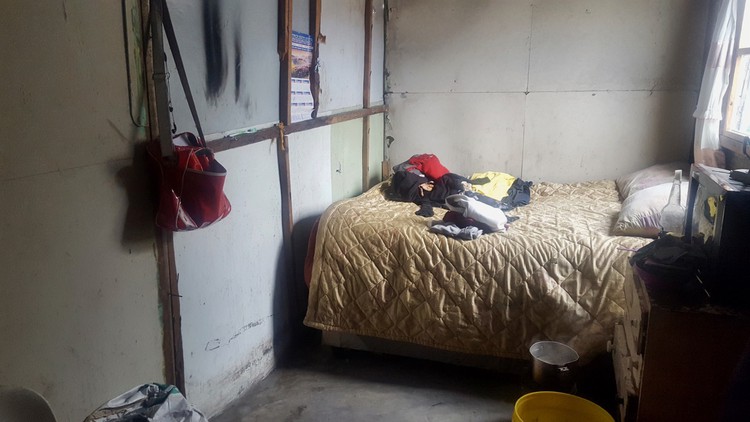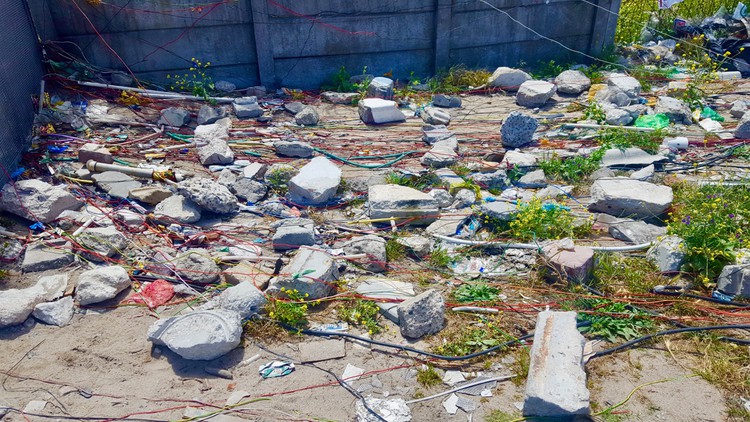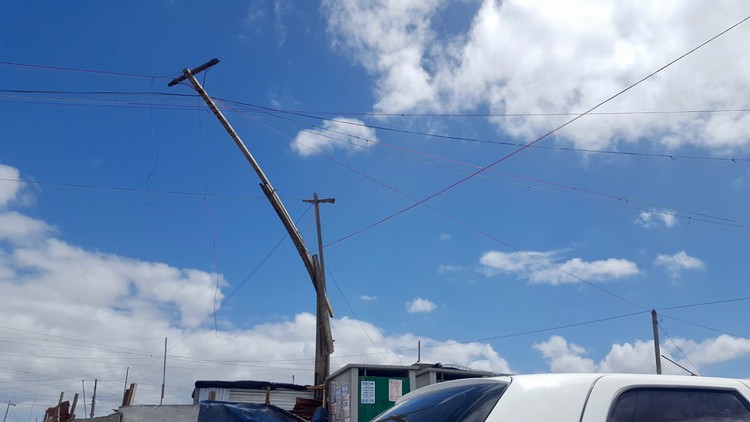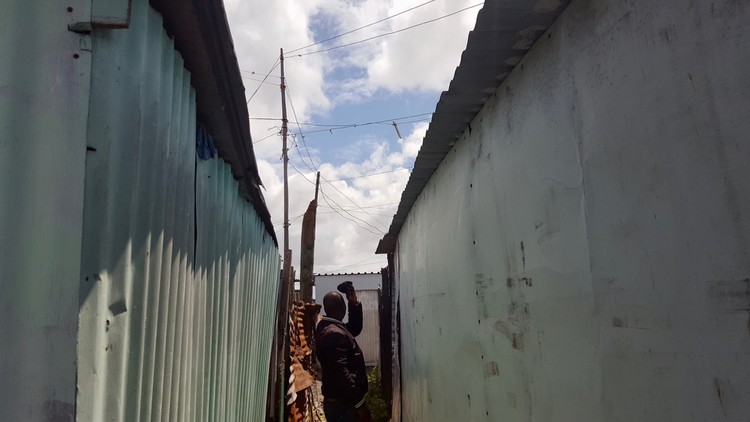
The bedroom where Yoliswa Gqwetha died in Marikana informal settlement, Philippi. All photos: Mary-Anne Gontsana
3 November 2017
Yoliswa Gqwetha of Marikana informal settlement, Philippi, apparently died by electrocution after her body touched the zinc sheet of the shack she was living in. She had fallen from her bed after an epileptic seizure in the early hours of Thursday morning last week. She was 27. She is survived by two children, aged six and seven.
“I found Yoliswa on the floor after hearing a loud noise coming from the bedroom,” said her older brother. “When I tried to pick her up by the arm, I got an electrical shock. I tried pulling her by the feet and I got another electric shock. Her head and left arm were touching the zinc.”
He called his neighbours for help, but “she died on the floor. She never made it to hospital,” he said.
The family believe she died from the electric shock. The death certificate says the cause of death is “under investigation”.
“We’ve been living in Marikana since 2014,” said her brother. “This is how we live in Marikana, all of us. We connect our own electricity from the ‘danger box’.”

Residents took GroundUp to see the “danger box”, not far from the Goal Supermarket on Stock Road, Philippi. Although the electricity distribution box is fenced with a wire cage and locked, there were dozens of wires coming from it running on the ground or propped up on poles in the air. The residents said a cow was once electrocuted here.
GroundUp was told that the key to the lock was kept by one of the community leaders and residents had to get his permission to connect to the box.
Gqwetha’s younger brother also got an electrical shock in May when his elbow accidentally touched the zinc wall of a shack. All he remembers is waking up afterwards at a clinic. His arm had burn marks.
Marikana residents have been complaining for years about the lack of street lighting and formal electricity. One resident told GroundUp that illegal connections was the only way to go.

The City of Cape Town mayoral committee member for informal settlements and energy, Xanthea Limberg, said, “The City is responsible for public lighting in Eskom supply areas, but Eskom is responsible for providing the connection for public lighting and also for actual electrification”.
Eskom spokesperson Khulu Phasiwe said, “Marikana is on private land and Eskom can therefore not electrify the area, hence illegal connections. From time to time, though, Eskom does “sweeps” to remove them. However, after a couple of days these illegal connections are then back up again.”
Phasiwe said the City had submitted an application for street lighting in the area and Eskom would execute the request. He also said the City was currently busy negotiating with the landowner to purchase the land and as soon as the transaction was done, Eskom could electrify the area.
Both Eskom and the City said they were unaware of Gqwetha’s death.
According to her family, Gqwetha was a “sweet girl” loved by many in the community. She will be buried in her hometown of Cofimvaba in the Eastern Cape.
